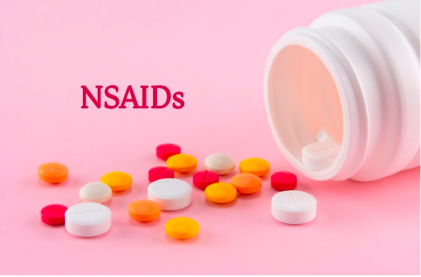Nonsteroidal anti-inflammatory drugs (NSAIDs) are a drug class that reduce pain, decrease fever, prevent blood clots and, in higher doses, decrease inflammation.
NSAIDs work by inhibiting the activity of cyclooxygenase enzymes (COX-1 and/or COX-2). In cells, these enzymes are involved in the synthesis of key biological mediators, namely prostaglandins which are involved in inflammation and thromboxanes which are involved in blood clotting.
The regional pharmacovigilance centers in Tours and Marseilles France have conducted a pharmacovigilance survey to investigate the risk of serious infectious complications associated with taking an NSAID in adults and children by focusing on 2 NSAIDs indicated in fever and mild to moderate pain most commonly used: ibuprofen and ketoprofen.
Of all the cases reported since 2000, 337 cases of infectious complications with ibuprofen and 49 cases with ketoprofen were selected after taking into account only the most severe cases in children or adults (often youth) without risk factors or comorbidity. These are severe infections of the skin and soft tissues (dermohypodermitis, necrotizing fasciitis), sepsis, pleuro-pulmonary infections (pneumonia complicated abscesses, pleurisy), neurological infections (empyema),cerebral abscess or complicated ENT (cellulitis, mediastinitis) leading to hospitalizations, sequelae or even death.
ANSM recalls that NSAIDs are already known to cause severe bacterial skin complications (necrotizing fasciitis) when used during chickenpox and should be avoided.
Recommendations:
ANSM (National Agency for Safety of Medicines and Health Products) France favour the use of paracetamol in case of pain and / or fever, particularly in a context of common infection such as angina, nasopharyngitis, otitis, cough, pulmonary infection, skin lesion or chickenpox, particularly in self- medication.
The rules of good use of NSAIDs in case of pain and / or fever:
- Prescribe and use NSAIDs at the lowest effective dose for the shortest duration
- Stop treatment as soon as symptoms disappear
- Avoid NSAIDs in case of chickenpox
- Do not prolong treatment beyond 3 days in case of fever
- Do not prolong treatment beyond 5 days in case of pain
Source:
www.ansm.sante.fr/Newsletter

Leave a Reply